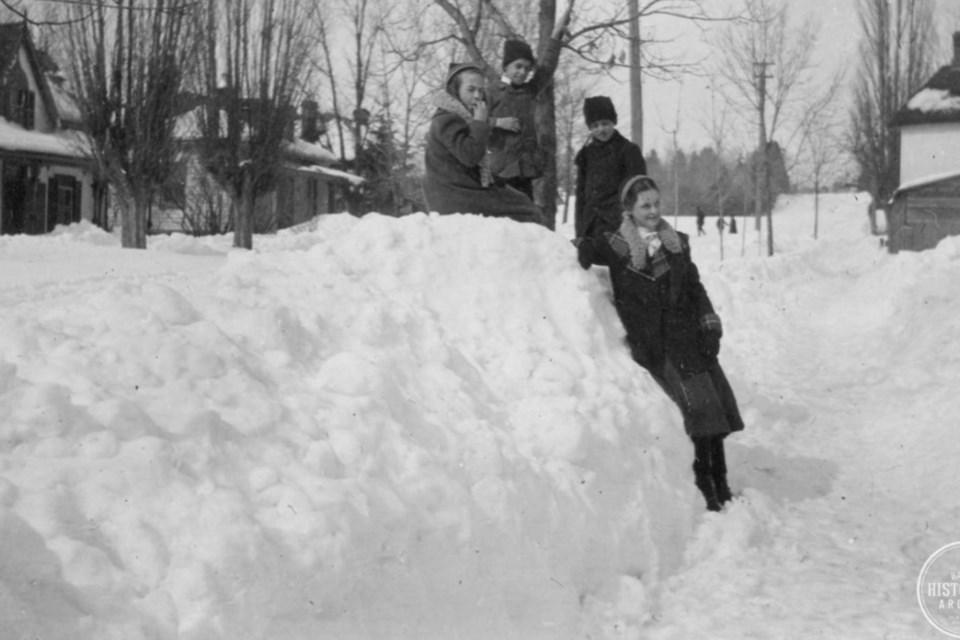White Christmas: yay or nay? Most people, it seems, would like to see a gentle fall of fluffy snowflakes on Christmas Day and then see it all disappear fairly soon after.
The classic Christmas card beauty is a welcome sight on Christmas Day. Snuggled cozily indoors, unwrapping gifts and enjoying a holiday feast with family, while the world turns white outside. What is not as welcome is the inevitability of many weeks of snow and cold that follow.
Historically, if you live in Barrie, your chances of seeing a white Christmas are fairly high. Nearly 80 per cent of our Christmases have been white, and that figure has changed little over time.
Long before modern weather forecasting came into being, ordinary folks tracked the outdoor conditions year-round. In many cases, this was no hobby, but a necessary task. Canada has some harsh and extremely variable weather and it was essential, in those early days, that residents looked for patterns and prepared for the worst.
Farmers were keen weather observers. Many would have kept a diary of some sort to record the daily conditions.
Organized weather forecasting began in the 1870s, but Fred Foyston had been keeping his own meterological records for a few years before that time.
Nine-year-old Fred Foyston sailed to Canada with his family in 1856. The Foystons came from Keyingham, a small Yorkshire village near England’s east coast, where snow and below-freezing temperatures are rare and the climate is dry. What a shock Upper Canada must have been.
The family first settled near the Humber River, just west of what would become Toronto. It is likely no coincidence their home village in England is situated near the original Humber River.
Eventually, the Foystons relocated to the Minesing area. Young Fred must have been fascinated by the rapidly changing weather conditions in this land. In 1868, when he was 20, the young man began writing a record of the weather he experienced, but he had been an interested observer since childhood.
“I remember an incident in my boyhood. On November 25 (about ’61 or ’62), it rained in the morning and by night it was many degrees below zero.”
His entire life was spent in farming and his weather note keeping had the potential to help him prepare his home, livestock and crops for the worst Canada’s climate can offer.
“I have kept record of the weather for 55 years and no two seasons have been just alike. In that time, we have had 23 cold winters, 13 mild and 20 normal. I mean by normal winters when cold and mild spells alternated, when the snow was removed and water ran.”
It was 100 years ago, December 1923, just two years prior to his death, that Fred Foyston shared these findings with the Barrie Examiner.
“Christmas Day of 1888 the temperature rose to 51 degrees and boats were out on the Barrie bay.”
The local newspapers commented on the unusual weather that December, calling it “springlike,” “like an English November” and as causing “disappointment at the rink because nature did not manufacture ice for Christmas.”
The farming branch of the Foyston clan may not have been keen on cold weather and ice, but a younger generation definitely was. Fred’s brother, Alfred Foyston, had a house full of hockey-mad boys, including NHL player Frank Foyston.
In 1909, this 15-year-old star of Vespra Township pond hockey was noticed and recommended to John Dyment, who was manager of the Barrie Colts. Frank Foyston went on to have a stellar hockey career, which included being on three Stanley Cup-winning teams.
Each week, the Barrie Historical Archive provides BarrieToday readers with a glimpse of the city’s past. This unique column features photos and stories from years gone by and is sure to appeal to the historian in each of us.



